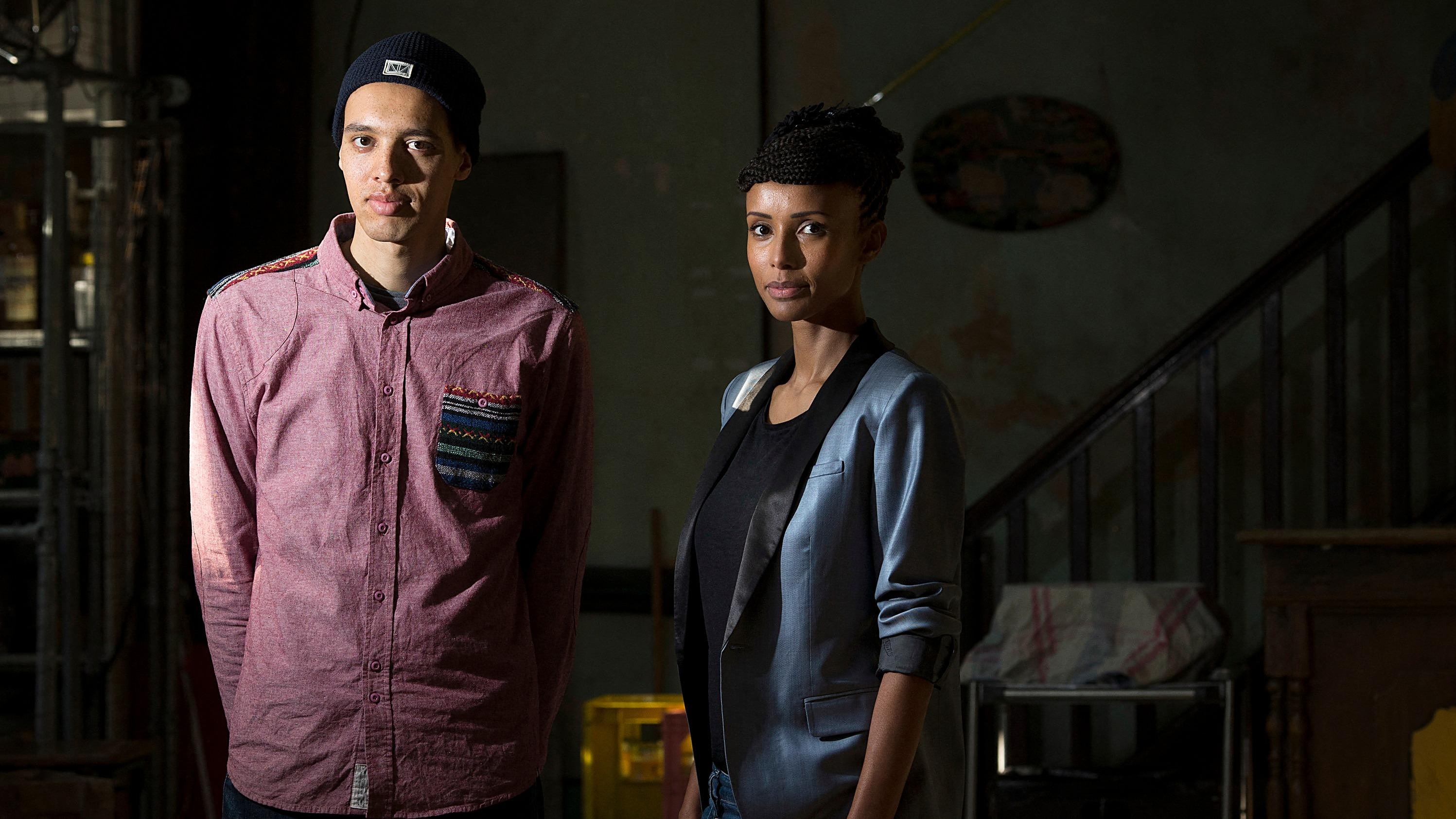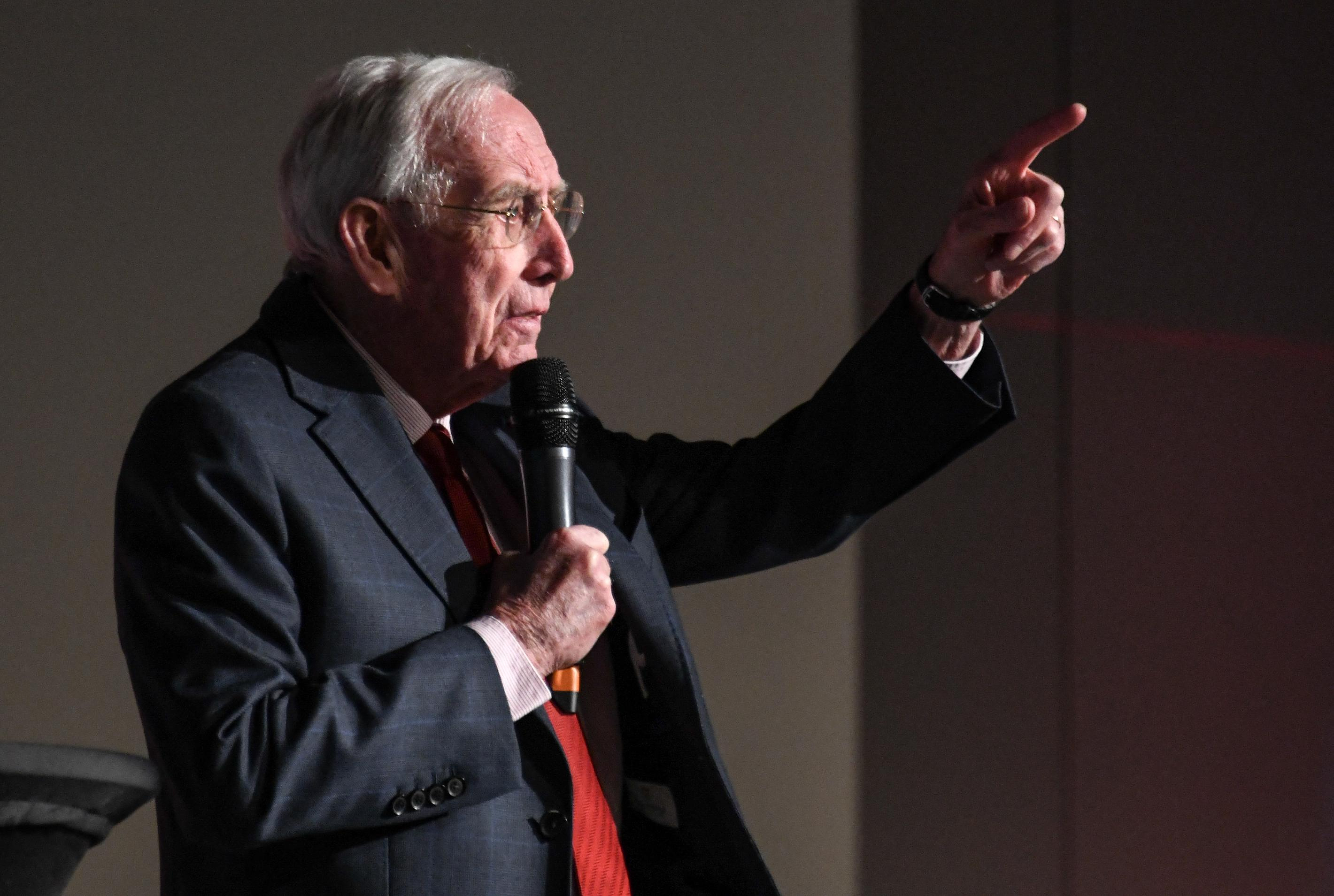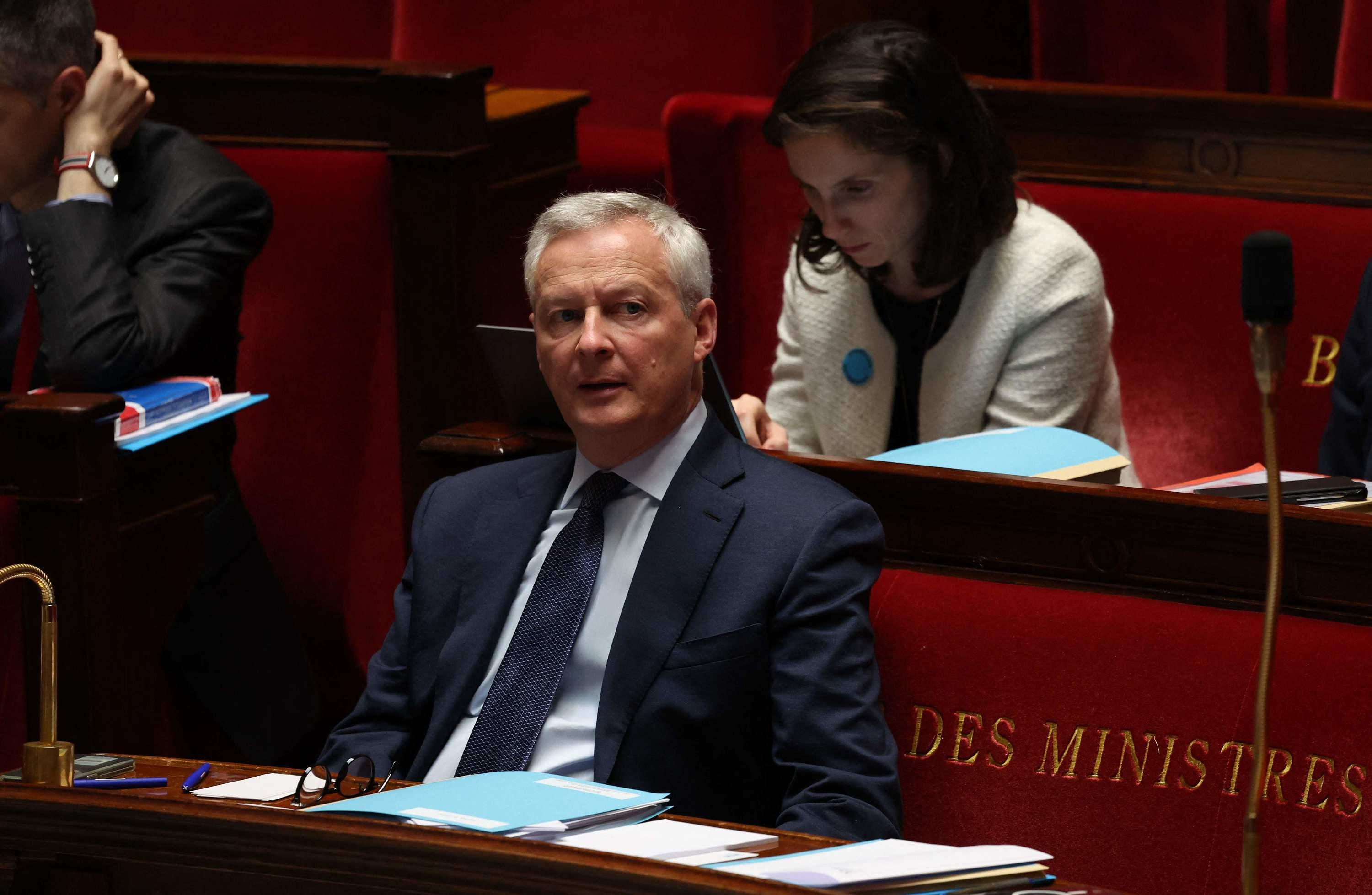“Objectively, it’s always a little embarrassing to talk about yourself... But to tell the big story, you have to start from the small one.” Between two film sets, Sonia Rolland takes the time to immerse herself in her memories. The Franco-Rwandan actress and director, elected Miss France in 2000, was 14 years old when she arrived in France in a chaotic context. It was 30 years ago, in June 1994. In his country of birth, Rwanda, the last genocide of the 20th century was taking place. In 100 days, between 800,000 and 1 million Tutsis were exterminated.
Sonia and her family were then in Bujumbura, Burundi, a country neighboring Rwanda. His Basque father and his Rwandan Tutsi mother found refuge there six years earlier, after fleeing the violence in Kigali. They did not suspect, then, that inter-ethnic rivalries would also trigger a civil war in this former Belgian colony.
At the French school in Bujumbura, young Sonia meets Gaël Faye for the first time. The future artist is two classes below, in 5th grade. Thirty years later, the two Franco-Rwandan artists have placed the history of genocide and exile at the heart of their production. Gaël, songwriter and singer, published a semi-autobiographical story about his childhood memories in the heart of the civil war, Petit Pays, winner of the Goncourt prize for high school students in 2016. Sonia, for her part, produced a documentary told at the first person, Rwanda, from chaos to miracle (2014), which looks back on the history of his country of birth. A story of mourning and heartbreak, which the two friends agreed to entrust to Le Figaro.
“The most terrible wars are those where life continues but where violence coexists,” begins Gaël. In 1994, the daily life of Sonia, 14 years old, and Gaël, 12 years old, in Bujumbura, was punctuated by gunshots and grenades. The atmosphere, which until then remained quite light in Burundi, has deteriorated significantly since 1993, after the democratic election of a Hutu president whom the Tutsis, who until then held the institutions, attempted to overthrow. A wave of violence then began which, concomitant with the genocide in Rwanda, caused between 50,000 and 100,000 deaths.
The two artists still remember the lynchings in the street and the corpses in the city. In the homes, all the children have gotten into the habit of sleeping under the beds as a safety measure. At the French school, attended by the children of French aid workers and UN officials, thick bougainvillea fences were erected to stop stray bullets. “Often, suddenly, we had to get down on our stomach because a car was passing and machine-gunning,” says Gaël. “The banks were functioning, the hotels were functioning. We went to school or went shopping. But we lived on the alert. We had days of confinement, and days of pseudo-normality... all the while knowing that life could stop at any moment.”
Sonia particularly remembers this day when, in the middle of class, the sound of a grenade rang out. With her neighbor, she ducks to take shelter under the table. Behind the windows, the students see the dazed heads of residents with hateful looks. A settling of scores was underway, and the students were, despite themselves, witnesses to it. These types of events are increasing in Bujumbura. Young Gaël does not understand the seriousness of things. At home, “events” – the usual euphemism for tensions between Hutus and Tutsis – are taboo. His father simply assures him that it is a story of "little noses" and "big noses" (the idea then goes that the Tutsi would be thin and slender with a straight nose, while the Hutu would be short and stocky).
At the end of March 1994, Paris decided to evacuate its nationals to Burundi. The French Minister of Cooperation Bernard Debré goes to Bujumbura to organize two flights, three days apart. Gaël and his sister take the second. It's time to say goodbye. The children meet on the wall of the school, now closed, to say goodbye to their friends. “There were departures every day. It was heartbreaking,” recalls Sonia.
On the plane, Gaël finds some French comrades who are also taking the road to exile. This journey will remain the last vision of this childhood universe that he will never find again. “Everyone left in a disaster. We hadn't written down the addresses. We all lost sight of each other,” says the singer. This sudden departure and the “profound solitude” that followed remain “the most difficult thing” he has had to experience. “Repatriation means returning to your country. I was going to a homeland that was mine, since I am Franco-Rwandan, but that I did not know.”
A week after their departure, on April 6, 1994, the plane carrying Rwandan President Habyarimana, a moderate Hutu, and Burundian President Cyprien Ntaryamira, was shot down by a missile above Kigali, triggering calls for genocide in Rwanda. When Sonia and her family took off in June, hundreds of thousands of Tutsis had already been massacred.
“It’s crazy how these memories disappear because they hurt too much…”. The actress, who now lives in France, remains thoughtful for a moment. “My mother still talks to me about those days as if it were yesterday. As a teenager, I did everything to turn the page. I wanted to reinvent my life.” Because the change is total. The Rolland family settles in Burgundy, in a public housing project which contrasts with the opulent house in Bujumbura. In the neighborhood, they are the only black people and the welcome is cold. Ditto at the public college in Cluny, where Sonia's classmates call her all kinds of names, "Snow White", "La Noiraude". She replies, “castrates some smart people”, gets fired several times for her behavior. “In Africa, however, I had always been the perfect student. But I wasn't happy there! My life was in Burundi,” the actress realizes today.
Also read “It’s a real revenge”: from the genocide in Rwanda to Miss France, Sonia Rolland talks about her story with emotion
Gaël arrives with a host family near Oyonnax, in Ain. His father remained in “Buja”, his mother, already in France, cannot welcome them immediately. The Alpine peaks remind the exiled child of the green hills of his childhood country. But exile is painful. “From one day to the next, we find ourselves completely alone.” At the college where he arrives for the third term, his teachers do not say a word of welcome. No more than his comrades, who know nothing about the war he left. “At the time, I didn’t suffer,” says the artist who, like any teenager, only aspires to blend in with the crowd. “I was simply looking to make friends quickly and not repeat a grade.”
He, who never had any academic problems, fought that year to reach the next class. With hindsight, he perceives in this discomfort the symptoms of a post-traumatic state, “but this term did not exist at the time”. “The only one who asked me questions was the class representative. I don't remember his name anymore. I only know that she pleaded in my favor at the class council. She understood. She fought herself". An attention which, in the midst of general indifference, marked the boy.
In France, it was from mid-May 1994 that the French media began to become aware of the genocide taking place in the Great Lakes. At Sonia's, dinner time is also that of the television news, punctuated with unbearable images. “This moment when other families share good times, we turn on the TV where we see men being torn to pieces with machetes. I couldn't take it anymore, I got up from the table and went to the kitchen."
The teenager never said a word about this to her classmates. She would only awaken her memories years later, when, exposed during her election to Miss France in 2000, she was asked to tell her story. An election that the actress herself likes to call a “social fairy tale”. It all started from an idea from her sports teacher, who suggested she register for the Miss Burgundy competition. The teenager, then passionate about basketball, only thinks about sport. She initially rejects the idea, then tries her luck anyway. She is elected, to her great surprise. “As my parents did not have the means, my whole neighborhood raised money so that I could enter the national competition. There was also a clothing collection from former Miss Burgundy,” says the actress, still moved by this outpouring of solidarity. “The beautiful thing is that these same people who initially rejected us allowed me to try the competition in Paris.” She smiles again. “Me, the Afro, they sent me to represent their region, one of the most chauvinistic in France!”
Three months later, Sonia became the first Miss France of African origin. Only then, questioned about her past, does she exhume the memories of this buried past. “It’s like a ball from which you pull the thread,” she describes. Looking back, I realized the violence of what I had experienced.”
Gaël Faye tells this story in his songs. The memories of a happy childhood in Burundi, the violence of the war in “this cursed month of April”, the solitude of exile, the pain, finally, of being “torn between Africa and France”, are found in the verses of the singer, whose album Lundi Méchant was named a gold disc in 2021. Beyond his titles, the artist is involved in several victims' associations which still track down former genocidaires today who fled to France. Sonia Rolland, who lent her voice to the documentary Rwanda, disobey or let die (broadcast on April 7 on France 5), is leading several long-filming projects in her country of childhood. “The story that we must remember above all is that these Rwandan people, who experienced one of the most significant massacres in history, have been able to rebuild their country for 30 years with a resilience that commands respect. », would like to emphasize the actress.

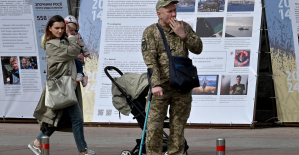 Ukraine has lost 10 million inhabitants since 2001... and could lose as many by 2050
Ukraine has lost 10 million inhabitants since 2001... and could lose as many by 2050 Russia: schools will train children to use drones at the start of the school year
Russia: schools will train children to use drones at the start of the school year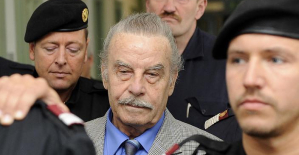 Austria: incestuous torturer Josef Fritzl, nicknamed the “national monster”, could soon be released
Austria: incestuous torturer Josef Fritzl, nicknamed the “national monster”, could soon be released An airline continues to treat a centenarian as a one-year-old baby
An airline continues to treat a centenarian as a one-year-old baby Sánchez cancels his agenda and considers resigning: "I need to stop and reflect"
Sánchez cancels his agenda and considers resigning: "I need to stop and reflect" The Federal Committee of the PSOE interrupts the event to take to the streets with the militants
The Federal Committee of the PSOE interrupts the event to take to the streets with the militants Repsol: "We want to lead generative AI to guarantee its benefits and avoid risks"
Repsol: "We want to lead generative AI to guarantee its benefits and avoid risks" Osteoarthritis: an innovation to improve its management
Osteoarthritis: an innovation to improve its management The French will take advantage of the May bridges to explore France
The French will take advantage of the May bridges to explore France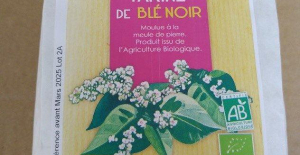 Organic flour contaminated by a recalled toxic plant
Organic flour contaminated by a recalled toxic plant 2024 Olympics: Parisian garbage collectors have filed a strike notice
2024 Olympics: Parisian garbage collectors have filed a strike notice Controversial free trade deal between EU and New Zealand comes into force this Wednesday
Controversial free trade deal between EU and New Zealand comes into force this Wednesday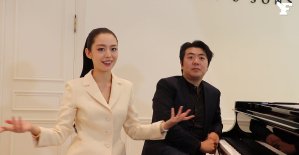 Lang Lang, the most French of Chinese pianists
Lang Lang, the most French of Chinese pianists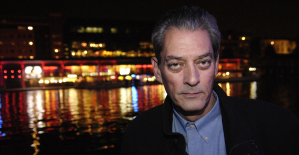 Author of the “New York Trilogy”, American novelist Paul Auster has died at the age of 77
Author of the “New York Trilogy”, American novelist Paul Auster has died at the age of 77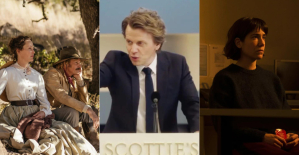 To the End of the World, The Stolen Painting, Border Line... Films to watch this week
To the End of the World, The Stolen Painting, Border Line... Films to watch this week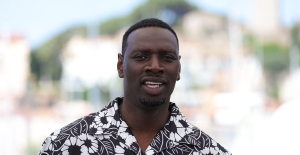 Omar Sy on all cultural fronts
Omar Sy on all cultural fronts Omoda 7, another Chinese car that could be manufactured in Spain
Omoda 7, another Chinese car that could be manufactured in Spain BYD chooses CA Auto Bank as financial partner in Spain
BYD chooses CA Auto Bank as financial partner in Spain Tesla and Baidu sign key agreement to boost development of autonomous driving
Tesla and Baidu sign key agreement to boost development of autonomous driving Skoda Kodiaq 2024: a 'beast' plug-in hybrid SUV
Skoda Kodiaq 2024: a 'beast' plug-in hybrid SUV The home mortgage firm rises 3.8% in February and the average interest moderates to 3.33%
The home mortgage firm rises 3.8% in February and the average interest moderates to 3.33% This is how housing prices have changed in Spain in the last decade
This is how housing prices have changed in Spain in the last decade The home mortgage firm drops 10% in January and interest soars to 3.46%
The home mortgage firm drops 10% in January and interest soars to 3.46% The jewel of the Rocío de Nagüeles urbanization: a dream villa in Marbella
The jewel of the Rocío de Nagüeles urbanization: a dream villa in Marbella Europeans: a senior official on the National Rally list
Europeans: a senior official on the National Rally list Blockade of Sciences Po: the right denounces a “drift”, the government charges the rebels
Blockade of Sciences Po: the right denounces a “drift”, the government charges the rebels Even on a mission for NATO, the Charles-de-Gaulle remains under French control, Lecornu responds to Mélenchon
Even on a mission for NATO, the Charles-de-Gaulle remains under French control, Lecornu responds to Mélenchon “Deadly Europe”, “economic decline”, immigration… What to remember from Emmanuel Macron’s speech at the Sorbonne
“Deadly Europe”, “economic decline”, immigration… What to remember from Emmanuel Macron’s speech at the Sorbonne These French cities that will boycott the World Cup in Qatar
These French cities that will boycott the World Cup in Qatar NBA: with 46 points, Maxey saves Philadelphia single-handedly
NBA: with 46 points, Maxey saves Philadelphia single-handedly Tennis: a Nadal-Alcaraz double at the 2024 Olympics? “If all goes well, yes,” replies the cadet
Tennis: a Nadal-Alcaraz double at the 2024 Olympics? “If all goes well, yes,” replies the cadet Tennis: “Actually it was a joke, I’ll come back next year!”, Nadal bids farewell to Madrid with humor and emotion
Tennis: “Actually it was a joke, I’ll come back next year!”, Nadal bids farewell to Madrid with humor and emotion Bayern Munich-Real Madrid: “Everything is still in our hands”, welcomes Manuel Neuer
Bayern Munich-Real Madrid: “Everything is still in our hands”, welcomes Manuel Neuer